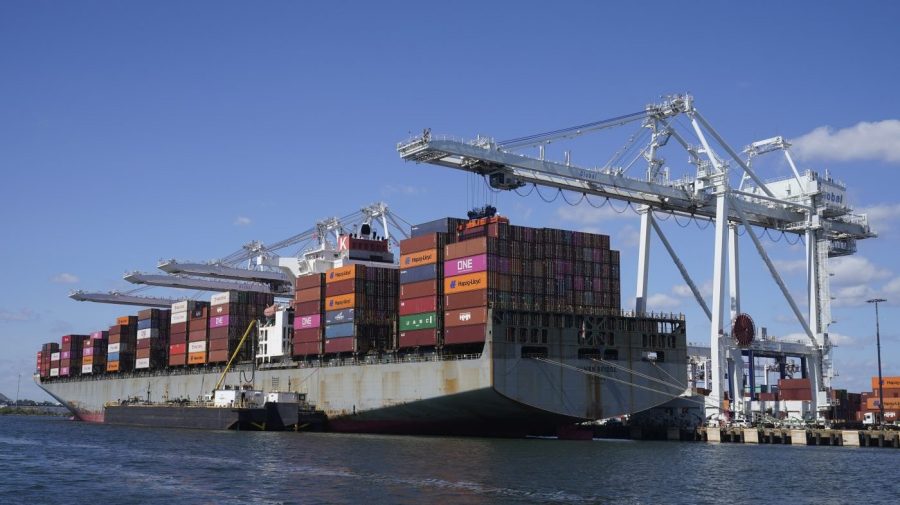
Less than 30 minutes into his second term, President Trump abandoned the pretext of isolationism he had adopted during his campaign and laid out the first steps for a 21st-century expansion of the American empire. His target? The Panama Canal.
Trump tapped into a familiar set of grievances in his inauguration speech as justification for taking back the waterway, claiming that “American ships are being severely overcharged.” He also claimed, despite Panamanian denials, that China was surreptitiously operating the canal.
Like many of Trump’s claims, this one is off-base. Although there are concerns about the Chinese government’s involvement in infrastructure projects near the canal, China has no control over the canal itself.
But China does have the power to cripple U.S. shipping and our access to key supply chains — and it doesn’t need the Panama Canal to do it.
Starting about 45 years ago, the U.S. government began abandoning polices that had, going back to colonial times, ensured that that America maintained a viable shipbuilding industry and merchant marine. But in the 1980s and ’90s, the U.S. abandoned these policies in favor of a radical free-market approach. Meanwhile, China and peer nations continue to heavily subsidize their shipyards and favor their domestically flagged ships.
The result was the near-complete collapse of the American shipping industry. At the end of World War II, American vessels controlled over 60 percent of global shipping capacity. Today, the largest American shipping corporation controls a mere 0.2 percent of shipping capacity.
Nearly 90 percent of American cargo is shipped by just three major ocean carrier cartels composed entirely of foreign corporations. The U.S. has also stopped building ships, producing less than 1 percent of the world’s vessels. Many of our largest port terminals are controlled by foreign corporations.
By contrast, China produces 95 percent of the world’s shipping containers, 86 percent of the world’s truck chassis, 80 percent of the ship-to-shore cranes in U.S. ports and over half of the world’s oceangoing vessels. On top of that, China also owns the world’s fourth-largest shipping company and the world’s most dominant shipping logistics management platform.
Thanks to deregulatory, laissez faire maritime policy, the U.S. has abandoned the oceans, allowing China and foreign shipping corporations full control over our channels of commerce. If an American business seeks to access world markets, it is at the mercy of a volatile shipping industry almost entirely controlled by extractive foreign shipping cartels, which themselves are at the mercy of China.
The harms are not merely theoretical. The U.S. saw the deleterious effects of an ocean-shipping supply chain monopolized by unregulated foreign cartels during the pandemic. Amid skyrocketing freight rates, American businesses struggled to import key goods, leading to a contraction of industrial production, further exacerbating inflation. Farmers and other exporters saw relationships with foreign buyers that took years to develop fracture because foreign shipping lines refused to ship their cargo.
One dairy exporter stated in testimony before the House of Representatives that “over 99 percent of our 2021 ocean shipments have been cancelled and rebooked for a later date at least once, if not twice, and in some cases up to 10 times or more.” The dairy exporter also noted that “over 100 bookings this year have been cancelled and rebooked 17 times. This equates to a five-month delay for customers.”
As in most areas, Trump and his surrogates have vacillated about maritime policy, but early indications are that he will continue the destructive, laissez-faire approach. In early January, Trump suggested that it might be better for the U.S. to continue outsourcing shipbuilding capacity, rather than to invest much-needed resources to build them at home.
Trump’s plans to shrink the federal workforce, and Elon Musk’s plans to cut spending by $2 trillion, would cripple the ability for an already-hamstrung Maritime Administration and Federal Maritime Commission to identify and address key vulnerabilities in the supply chain. Political stunts like the now-rescinded funding freeze cause serious uncertainty when planning large, capital-intensive projects such as vessel construction or port modernization. Finally, Trump’s broad promises to deregulate will leave American shippers without protection against the whims of foreign shipping cartels.
Rather than learn from his predecessors, Trump seems poised to repeat their mistakes. The last 45 years of deregulatory maritime policy has left our economic security wholly dependent on the goodwill of China and foreign shipping cartels. Attempting to reclaim the Panama Canal while continuing on the path of radical deregulation does not serve to make the U.S. more safe, prosperous or economically secure.
Arnav Rao is a transportation policy analyst at the Open Markets Institute.












